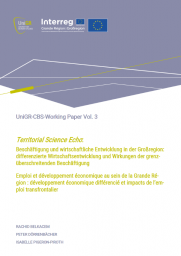Working Paper Vol. 3

The working paper examines the themes of employment and economic development and addresses the challenges of spatial development in the Greater Region. It focuses in particular on industrial history, employment and cross-border work in the Greater Region.

